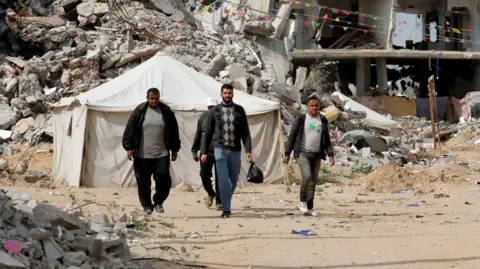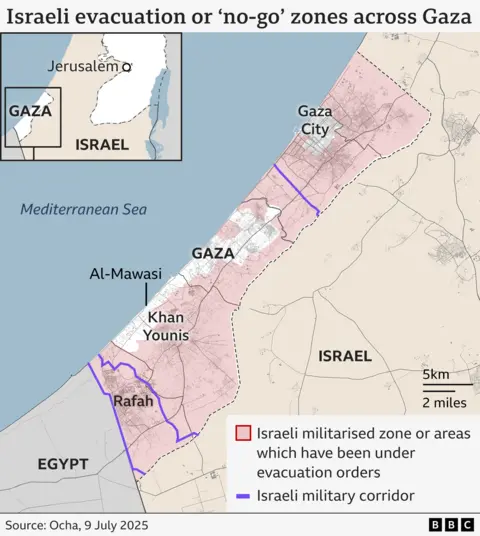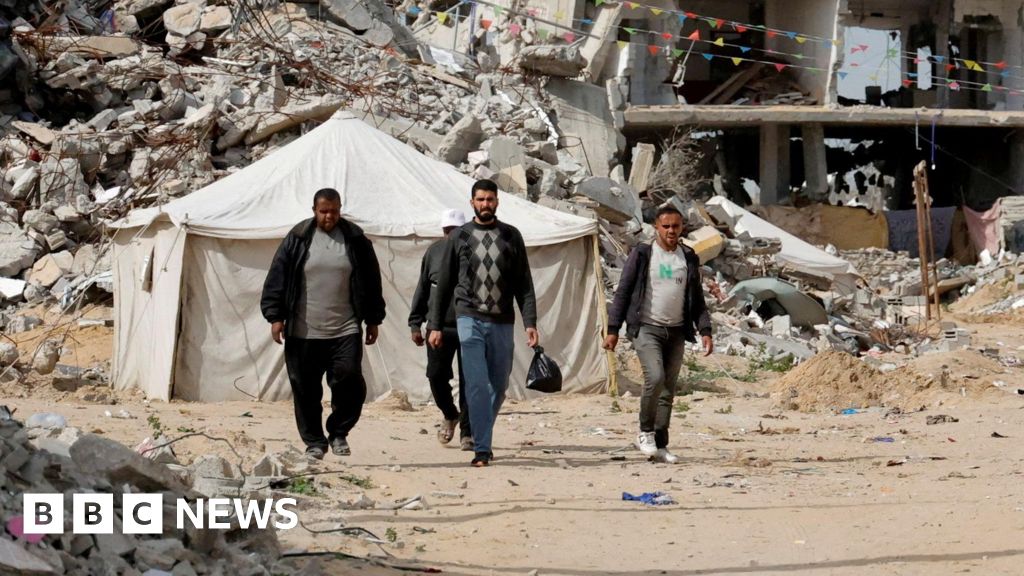 Reuters
ReutersFor Gazans, a 60-day ceasefire being negotiated between Israel and Hamas would be a lifeline.
A window to bring in large quantities of desperately needed food, water and medicine after severe – and at times total – Israeli restrictions on aid deliveries.
But for Israel’s defence minister Israel Katz a two-month pause in military operations would create an opportunity to build what he has called a “humanitarian city” in the ruins of the southern city of Rafah to contain almost every single Gazan except those belonging to armed groups.
According to the plan, Palestinians would be security screened before being allowed in and not permitted to leave.
Critics, both domestically and internationally, have condemned the proposal, with human rights groups, academics and lawyers calling it a blueprint for a “concentration camp”.
It’s unclear to what extent it represents a concrete plan of Prime Minister Benjamin Netanyahu’s government or whether it is a negotiating tactic to put more pressure on Hamas in the talks on a ceasefire and hostage release deal.
In the notable absence of any Israeli plan for Gaza after the war ends, this idea is filling the strategic vacuum.
Katz briefed a group of Israeli reporters that the new camp would initially house about 600,000 Palestinians – and eventually the whole 2.1 million population.
His plan would see the Israel Defense Forces (IDF) securing the site from a distance while international bodies managed the area. Four aid distribution sites would be established in the area, he said.

Katz also restated his desire to encourage Palestinians to “voluntarily emigrate” from the Gaza to other countries.
But it has not gained traction or support among other senior figures in Israel, and according to reports the proposal even triggered a clash between the prime minister and the head of the IDF.
Israeli media say the office of the chief of the general staff, Lt Gen Eyal Zamir, made clear the army was not obligated to forcibly transfer civilians, as the plan would require.
It’s claimed Gen Zamir and Netanyahu were involved in an angry exchange during a recent war cabinet meeting.
Tal Schneider, a political correspondent at the centrist Times of Israel, said Zamir would be in a strong position to push back because the government “practically begged him to take the job” six months ago – and Netanyahu strongly endorsed his appointment.
It’s not only the top military brass that is opposed to the idea. There is also consternation among rank and file too.
“Any transfer of a civil population is a form of war crime, that’s a form of ethnic cleansing, which is also a form of genocide,” IDF reservist Yotam Vilk told the BBC at his home in Tel Aviv.
